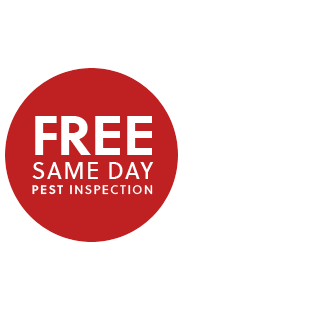Avoiding unwanted yellowjacket encounters
Late summer is prime yellowjacket season. Clark, your friendly pest, mosquito, termite, and rodent control expert, would like California and northern Nevada homeowners and their families, outdoor enthusiasts, and workers whose jobs require them to be outdoors to be aware and take the proper precautions.
Some stinging insects, like honey bees, are beneficial to our environment. But others – including yellowjackets (the most frequently encountered stinging insect), carpenter bees, wasps, and hornets – can pose a threat to people and structures.
Why are yellowjackets aggressive?
Why are yellowjackets such a nuisance? Their aggressive behavior, when you’re trying to enjoy a meal on a restaurant patio or in your own backyard, can be attributed in part to the following:
- Foraging behavior: Yellowjackets are social wasps that typically become more aggressive in late summer and early fall. As summer progresses, their colonies grow, and worker yellowjackets become more focused on foraging for food to sustain the colony through the winter. This increased foraging activity can lead to more encounters with humans, especially when yellowjackets seek sugary foods and other food sources.
- Scarcity of natural food sources: In late summer and early fall, natural food sources, such as nectar and insects, become scarcer. This scarcity of natural food drives yellowjackets to search for alternative food sources, which can include human food, sugary drinks, fruit, and picnic leftovers.
- Nest abandonment: Toward the end of summer and into early fall, yellowjacket colonies start to decline in size as the new queens and male wasps leave the colony to mate. This can result in the abandonment of nests, and worker yellowjackets may become more aggressive as they are left without a queen to protect.
- Aggressive behavior: Yellowjackets are known for their aggressive behavior when they sense their nests or food sources are threatened. In the fall, as they become more desperate for food and resources, they can become more aggressive and territorial, leading to an increased likelihood of stings.
- Attraction to sweet foods: Yellowjackets are attracted to sweet and sugary foods, which are more commonly found in the fall as people enjoy outdoor activities, picnics, and barbecues. Open containers of soda, fruit, and desserts can draw yellowjackets to human gatherings.
Yellowjackets are mostly scavengers that are attracted to garbage cans, pet food bowls, soda cans, overripe fruit, and sugary foods.
To avoid problems with yellowjackets in the fall, it's important to be aware of food and drink containers, keep garbage sealed and away from outdoor activities, and take precautions such as using traps or repellents if you're in an area with a known yellowjacket presence.
If you encounter a yellowjacket nest, it's best to contact a trained pest control professional like the ones at Clark Pest Control for safe removal. Attempting to remove the nest yourself can be dangerous due to the aggressive nature of these pests.
Yellowjacket control from Clark Pest Control
If you’re having a problem with yellowjackets or other stinging insects around your home, Call California’s trusted, friendly pest control expert at (800) WE-NEED-YOU (936-3339) or email us at clarkcares@clarkpest.com.
Until next time, the pest management professionals at Clark Pest Control thank you for helping to keep unwanted pests out of your home and yard.


